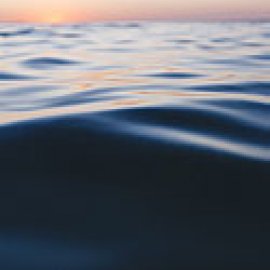The Ocean as Peacebuilder
-
English
-
ListenPause
[intro music, ocean sounds]
Welcome to World Ocean Radio…
I’m Peter Neill, founder of the World Ocean Observatory.
Recently I received a copy of an article discussing the concept of “the ocean as peacebuilder,” an amplification to existing international goals for ocean sustainability. The authors were representatives of the United Nations International Oceanographic Commission and the Natural Science Foundation of China. The concept presented was that “the modalities of human relations with the ocean should support the peaceful coexistence of nations….and that adding explicit peacebuilding to current ocean research and management practice could not only help nations make the ocean a critical ally of sustainability but also support peace in the world.” The article goes on to identify a key distinction, part of the explanation of why all the research and policy work that has been done worldwide has not succeeded to meet the challenges of climate change and ocean degradation: “since human interactions with the ocean are science-intensive, the ocean’s peacebuilding potential is inseparable from the objective and cooperative nature of ocean science.” This premise lies at the heart of a systemic disconnect that, in my view, has not advanced the penultimate international goal understanding and preserving all aspects of the ocean’s impact on human enterprise and a sustainable future
Beyond science, the ocean is “socially intensive,” a place beyond species and habitat where through trade, transportation, food, energy, finance, health, education, community development, and cultural tradition unites, rather than separates, where, indeed, the sea connects all things. Water, salt and fresh cyclically combined, is the great enabler of civil society and to miss that point as the core of any strategy to maintain civilization is a fundamental mistake for which, some argue, we are paying the price right now.
The article cites various tools available to the world community: UNCLOS, the UN Conference on the Law of the Sea; the agreement for the Protection of Biodiversity Beyond National Jurisdiction; and other international instruments that are intended to protect and sustain marine life in the “high seas,” coastal zones, and ocean floor. All of these agreements and other regulatory initiatives address “the ocean’s environmental challenges…to include global warming, acidification, pollution, habitat destruction, invasive species, ecological consequences of deep-sea mining and exploitation of ocean genomics…as well the more direct human impacts of unregulated fishing, crime, piracy, slavery at sea, unsafe migration, trafficking of drugs, weapons, and people, militarization, and armed conflicts.” And further, there are the climate challenges of extreme weather, sea-level rise, erosion, inundation, other risks to coastal zones and displacement of persons, and other stressors…that lead to territorial problems…and the frequency of international conflict.” It’s subtle, but each of these, and prior responses to them, seems shifted or refined or newly contextualized and adjusted with a sense that the approach is different, with value-added, will shift the axis away from failure and frustration to renewal and a new sense of vigor, vitality, and possibility.
In 1998, when the former president of Portugal, Mario Soares, convened an Independent Commission for the Future of the Ocean and issued the seminal report, The Ocean Our Future, from which the World Ocean Observatory emerged as a penultimate recommendation, the first premise was that the ocean was “an integrated, global, social system, that transcended conventional focus on species and habitat to include human behavior as an integral part of a world process. That prescience has gotten lost along the way, superseded by the methodology and authority of science. In the interim we are infinitely better informed, but paradoxically, we are lesser engaged, and the progress envisioned has been compromised by indifference to public engagement and communication. That we have now to re-define our initiative as a quest for peace is either a sign of final desperation or of a re-discovery of an ultimate strategy for success.
We will discuss these issues, and more, in future editions of World Ocean Radio.WORLD OCEAN RADIO IS DISTRIBUTED BY THE PUBLIC RADIO EXCHANGE AND THE PACIFICA NETWORK, FOR USE BY COLLEGE AND COMMUNITY RADIO STATIONS WORLDWIDE. FIND US WHEREVER YOU LISTEN TO PODCASTS, AND AT WORLD OCEAN OBSERVATORY DOT ORG, WHERE THE FULL CATALOG OF MORE THAN 700 RADIO EPISODES IS SEARCHABLE BY THEME.
[outro music, ocean sounds]This week Peter Neill is reading from an article written by representatives of the UN IOC and the Natural Science Foundation of China, based on the concept of ocean as peacebuilder and amplifier of ocean sustainability. The authors argue that the ocean’s peace-building potential is inseparable from the objective and cooperative nature of ocean science.
About World Ocean Radio
World Ocean Radio is a weekly series of five-minute audio essays available for syndicated use at no cost by college and community radio stations worldwide. Peter Neill, Founder of the World Ocean Observatory and host of World Ocean Radio, provides coverage of a broad spectrum of ocean issues from science and education to advocacy and exemplary projects.
World Ocean Radio
15 Years, 750+ Episodes
Ocean is climate
Climate is ocean
The sea connects all things
- Login to post comments



